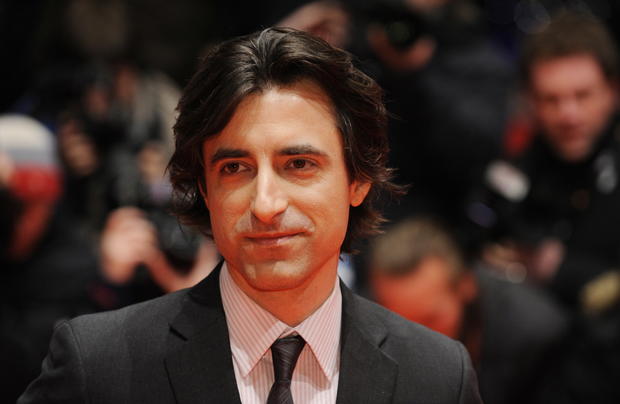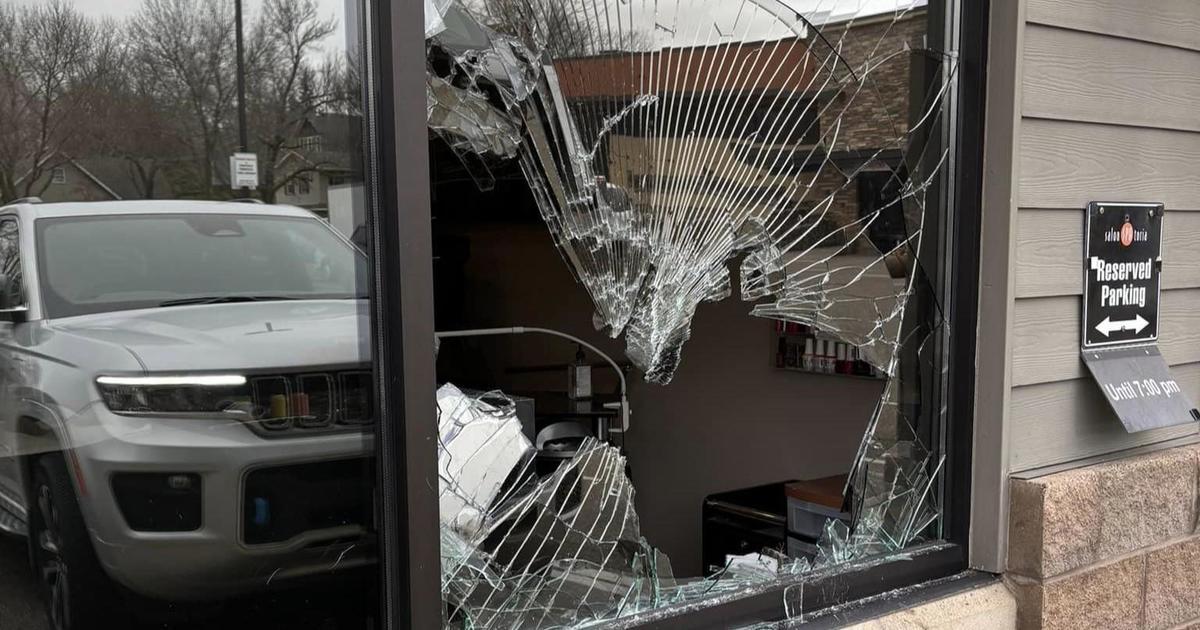Movie Blog: Q&A With 'Frances Ha' Director Noah Baumbach
Following two of the most acerbic films of his career, Frances Ha is like a breath of fresh air for director Noah Baumbach. The cool and breezy effect is in no small part due to Baumbach's collaboration with actor-screenwriter Greta Gerwig, with whom Baumbach became involved with as the two were working on Baumbach's previous film Greenberg.
Gerwig stars as Frances, an extremely genial representative for NYC's teeming creative class who loses her boyfriend at the beginning of the film when she refuses to move in with him and screw over her best friend Sophie. But when Sophie turns around and moves in with her own boyfriend-cum-fiancé, Frances finds herself reeling in every respect, unmoored from her living situation, romantic prospects and career aspirations.
Despite the heaviness of the subject matter, Baumbach and Gerwig paint their creation with palpable affection, so much so that the movie everyone has compared to HBO's Girls (thanks, in no small part, to the participation of Adam Driver) seems a lot closer to Woody Allen's Annie Hall reborn as a neo-Manhattan.
Baumbach was in town last month when a screening of Frances Ha wrapped up a Walker Art Center retrospective of his work. (See the video at the bottom of this post for Baumbach's dialogue at the WAC.) Here is a transcription of our conversation:
-------
-------
Eric Henderson: I loved this movie in a way that reminded me of when Pauline Kael wrote about feeling almost protective over the movie Casualties of War.
Noah Baumbach: To use that word, I think I felt "protective" of the character. I felt like that the character and Greta's influence on it, both in writing it and playing it, I felt like the movie had to take care of her in some way, and I had to take care of her. So I wanted her to be, to some degree, rewarded at the end of the movie. And I think that sort of feeling went into a lot of my decisions on the movie. (And with) the B&W, the music, I wanted to celebrate the character and the city. I think everything that you're responding to, I was feeling too in making the movie. I think Greenberg has the movie that's right for that character, I think Margot likewise. Not that I know that going in for sure, how the movie's going to feel or feel for other people. But I did know that I wanted Frances to have a satisfying conclusion.
Henderson: Was that the ending Greta had in mind, in co-writing?
Baumbach: She (Frances) is, by design, an incomplete person.
Henderson: Right, the half last name.
Baumbach: The big success for her is that she takes a desk job. And that is a success for her. When she's offered that job earlier in the movie, she can't see that this is actually someone being generous. And I feel like I was that way in my 20s; a lot of people were. I think what I love about the way the movie ends is that it's rewarding to her, but in a way that's totally true to the material. It's not a typical happy ending. It's a victory for this person in particular.
Henderson: I wanted to congratulate you, also, for creating a movie that clearly passes the Bechdel test. Have you heard of that?
Baumbach: No, what is that?
Henderson: It is a theory that only very few films in American cinema have a scene, let alone nearly an entire movie, where two female characters are talking without a man present or are talking about a man.
Baumbach: Oh, that's good.
Henderson: Also, as someone who is also "undateable," to use Frances's word, I appreciated the fact that the movie doesn't resolve her love life. It feels like the movie's building toward something with the character of Benji (Michael Zegen), but it doesn't give you the satisfaction of seeing it reach the next level.
Baumbach: As we were writing it and figuring out what the storyline was, an early breakthrough in our writing was seeing that the movie would be broken into these chapters that were all different locations for her. Once we figured that out, it informed a lot of other things. And then the Sophie storyline kind of followed that, because that became the throughline. We realized retrospectively after we had the draft that there was no central male relationship. The love story was her and Sophie. We were proud of that, but I think that if a boyfriend or male love story had sort of found its way in, it's not that we would have thrown it out on principle. It just never seemed right for this story.
Henderson: One of my favorite things about the film is the way people use their words. I know Greta just did Damsels in Distress with Whit Stillman. And I think both of you share a kinship in your delight with dialogue and, specifically to you, the way that words don't what the characters think they mean. One of my favorite lines in Margot and the Wedding was when Jennifer Jason Leigh says, "If I could read your handwriting I'm sure I'd be furious."
Baumbach: Dialogue is, for me, cinematic. I find it cinematic just watching people talk. (Dialogue) has always been something that helps me find the movie, the characters, the situations. I'm kind of transcribing it, in a way. When it's going well, when I'm in the zone writing a scene, I think I'm writing down how I hear people talk. Whether it is or not, I don't know, but it's some simulacrum of that. It is the lynchpin for me in how I find a scene and how I find the character.
Henderson: You also have an ear for the way speech patterns change with the introduction of alcohol. Is that based on any particular observations?
Baumbach: (Laughs) Just getting drunk?
Henderson: You don't record yourself drunk, do you?
Baumbach: When I was a kid, my friends and I used to tape ourselves and do little radio plays. And then we would do a thing where we would start taping each other secretly. I haven't done this as an adult. I do record things in notebooks of things I hear people say. I am a stickler in shooting a movie in that often two words feel like they should go the other way around in a phrase, and an actor might invert them even unconsciously to how they think they should say them, and I'm clear that I want it back the other way. Those sort of awkward ways of talking are interesting to me.
-------




